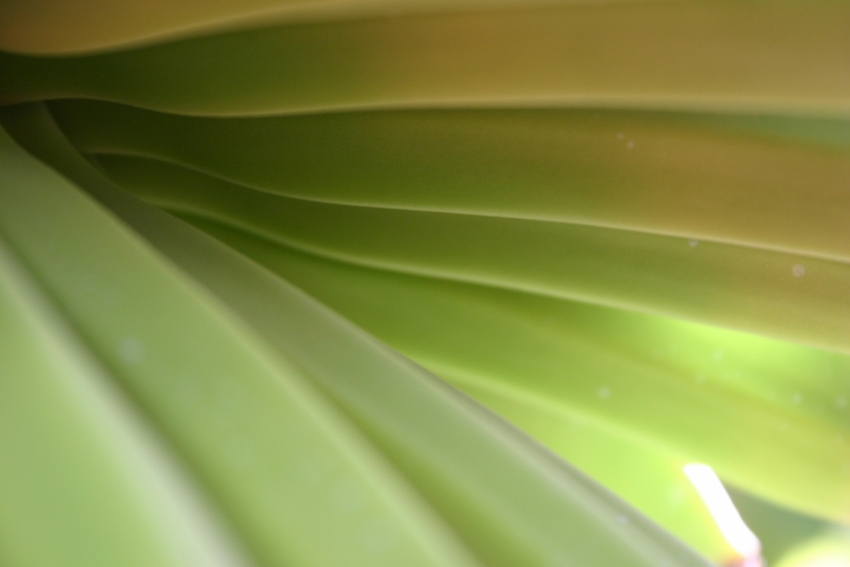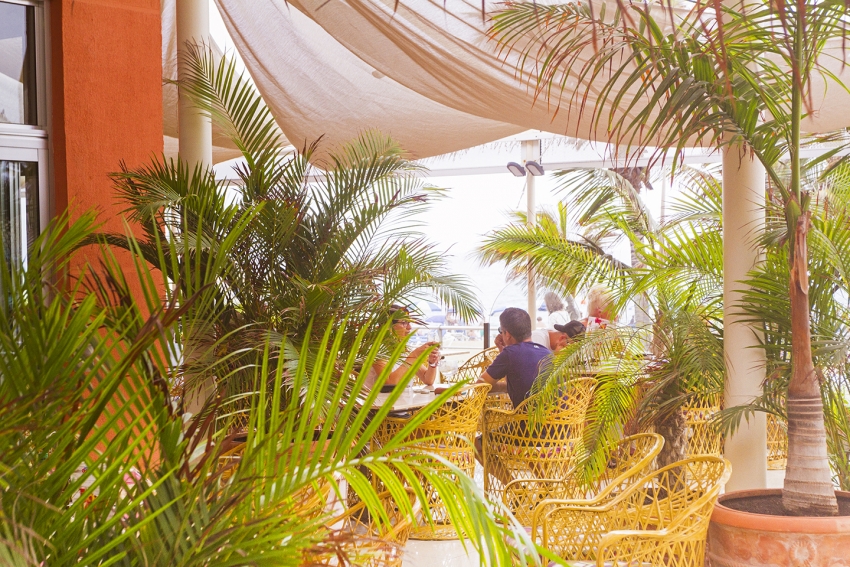You'll see banana plantations all over north Gran Canaria and in the rural valleys in south Gran Canaria such as Veneguera. Plantations have walls full of holes around them that allow the wind to blow through and disperse rather than blowing over the wall and damaging the plants.
Lots of people even have a clump of bananas in their Gran Canaria garden and always get plenty of fruit to give to their neighbours.
Why are Canarian bananas so tasty?
It's a combination of the sunny climate in Gran Canaria, the type of bananas that we grow and the fact that they stay on the plant for much longer than most bananas.
Gran Canaria's climate is perfect for growing bananas as the warm temperatures, cool breeze, and almost constant sunshine let the plants grow in perfect conditions.
The banana plants that grow in Gran Canaria are a variety called the Dwarf Cavendish; It’s a short banana plant (about three metres high) that produces big bunches of small, sweet bananas. They are about half the size of a Caribbean or South American banana but pack in much more flavour and sugar.
Canarian bananas that are exported to Europe are picked days before they arrive in the shops rather than weeks for Caribbean bananas. This means that they are much riper and contain more sugar, vitamins and taste.
Look for Canarian bananas in shops all over Spain, in ASDA supermarkets in the UK, and in Karstadt and Kaufhof supermarkets in Germany. You also find them in specialist fruit shops and markets all over Europe.
How to choose the tastiest bananas
No matter how quickly a banana gets to market in Europe, it will never be as tasty as the ones that you buy in Gran Canaria itself and especially the ones you find in local markets and little shops.
These come directly from the plantation and have never been in a fridge. This is important as chilling bananas means that they stop ripening and never develop their full flavour.
To recognise a good banana, look for an even yellow colour ( a bit of green at the tip is fine) with no bruising. Canarian bananas are perfectly ripe when they start to get tiny black spots on the skin.
If you buy too many and they go soft, use them to make smoothies or delicious banana bread.
You can now even buy wine made from bananas in Gran Canaria supermarkets and souvenir shops. Called Platé, it’s a slightly sweet wine with a faint taste of banana and is a great gift to take home for friends who missed out on eating sun-ripened Canarian bananas in situ.
Not just tasty but also healthy
Bananas aren’t just tasty but are also rich in potassium (important in the Canary Islands where you sweat more than at home), Vitamin B6, Vitamin C, Magnesium and soluble fibre.














